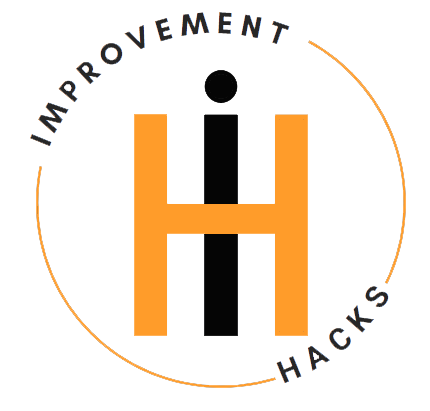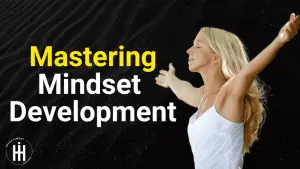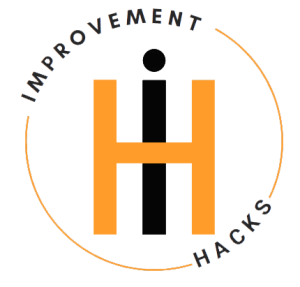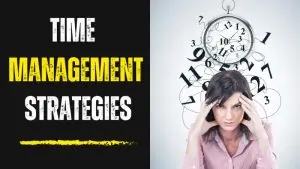Our way of thinking is incredibly important because it shapes the way that we act, feel, think, and what we go through.
And even though we tend to think of our mindset as one big thing, it’s actually made up of several smaller pieces.
Some of these pieces boost our well-being and help us thrive in life, while others tend to hold us back.
This is why cultivating specific mindsets can make a big difference in our self-improvement, life satisfaction, and success.
Here are 4 of the most popular and helpful mindsets to consider:
● Growth Mindset
● Positive Mindset
● Entrepreneurial Mindset
● Challenge Mindset
The good news is that you can change these mindsets if you want to.
And if you feel like you’re lacking in a certain mindset, you can practice mental exercises and activities to nurture and grow it.
Now, let’s delve into each of these mindsets and explore how you can develop them.
Growth Mindset
People who have a growth mindset have a tendency to think that they can get better at things if they work harder at them.
When you’ve got a growth mindset, you try harder, you want to learn new strategies, and you ask for feedback whenever you get stuck (Dweck, 2015).
Out of all the different mindsets the growth mindset is the most studied type.
Having a growth mindset has been linked to a lot of success in a variety of life areas (Yeager et al., 2019).
And developing a growth mindset becomes easier when you understand neuroplasticity, which is your brain’s knack for changing and evolving.
The exciting part is you have the power to reshape your brain, acquire new knowledge, and master fresh skills.
When you fully believe in this, you’re more motivated to put in the effort needed to learn and grow, and this can lead to improvements in many aspects of your life.
Positive Mindset
When you have a positive mindset, you tend to focus on the good things in life rather than the bad ones.
People with a positive mindset quite often use techniques like gratitude, looking at situations in a new light (reappraisal), and fully enjoying pleasant moments (savoring) to spot the good things and boost their positive feelings (Quoidbach, Mikolajczak, & Gross, 2015).
Their attitudes tend to be generally optimistic and they often expect good outcomes.
Having a positive mindset can do wonders for our overall well-being and even contribute to our success.
In fact, the broaden and build theory of positive emotions suggests that positive feelings can build upon each other over time, eventually leading to achievements in areas like work and relationships (Fredrickson, 2004).
Entrepreneurial Mindset
An entrepreneurial mindset isn’t just for future business owners; it’s something that can benefit all of us in today’s rapidly changing world.
Our modern lives are constantly evolving, and the skills required for entrepreneurship are the same ones that help us adapt and navigate through all the swift changes and uncertainties.
That’s why having an entrepreneurial mindset can be a pretty big deal.
According to a whitepaper on entrepreneurial mindset by Gold and Rodriguez in 2018, this mindset involves a bunch of important skills, including:
Comfort with risk: Being okay with taking chances.
Creativity & innovation: Thinking up new and original ideas.
Critical thinking & problem-solving: Finding solutions to tough problems.
Initiative & self-reliance: Taking the lead and being self-sufficient.
Communication and collaboration: Working well with others and sharing ideas.
Future orientation: Thinking about what lies ahead.
Opportunity recognition: Spotting chances for growth.
Flexibility & adaptability: Adapting to changes as they come.
All these skills can boost your success in both your education and your career.
But let’s be honest, it’s a wide range of skills, and not one person is a superstar in all of them.
So, the best approach is often to work on improving the skills where you might be a bit weaker.
Challenge Mindset
A challenge mindset comes into play when we face tasks like tests, games, sports, work, and other stuff where we need to perform.
In these situations, we have a choice: we can either see them as challenges we can deal with or threats that might overwhelm us.
This mindset is all about how we look at what’s expected from us and the tools we have to handle it.
These tools can be our skills, what we know, our abilities, and even our self-confidence.
The challenges, on the other hand, might involve risks, unknowns, and the effort needed to succeed (Blascovich et al., 2004).
Here’s the cool part: most of these tools and challenges are in our heads, they’re about how we think and feel.
We have the power to change them.
When we push ourselves to see tough situations as challenges we can tackle, we actually react to them in ways that are more helpful.
In fact, having a challenging mindset can even change our body’s reactions in a way that can boost our chances of success (Blascovich et al., 2004).
References
● Blascovich, J., Seery, M. D., Mugridge, C. A., Norris, R. K., & Weisbuch, M. (2004). Predicting athletic performance from cardiovascular indexes of challenge and threat. Journal of Experimental Social Psychology, 40(5), 683-688.
● Dweck, C. (2015). Carol Dweck revisits the growth mindset. Education Week, 35(5), 20-24.
● Fredrickson, B. L. (2004). The broaden–and–build theory of positive emotions. Philosophical Transactions of the Royal Society of London. Series B: Biological Sciences, 359(1449), 1367-1377.
● Gold, T., & Rodriguez, S. (2018). Measuring entrepreneurial mindset in youth: Learning from NFTE’s Entrepreneurial Mindset Index. Network for Teaching Entrepreneurship.
● Quoidbach, J., Mikolajczak, M., & Gross, J. J. (2015). Positive interventions: An emotion regulation perspective. Psychological bulletin, 141(3), 655.
● Yeager, D. S., Hanselman, P., Walton, G. M., Murray, J. S., Crosnoe, R., Muller, C., … & Paunesku, D. (2019). A national experiment reveals where a growth mindset improves achievement. Nature, 573(7774), 364-369.






